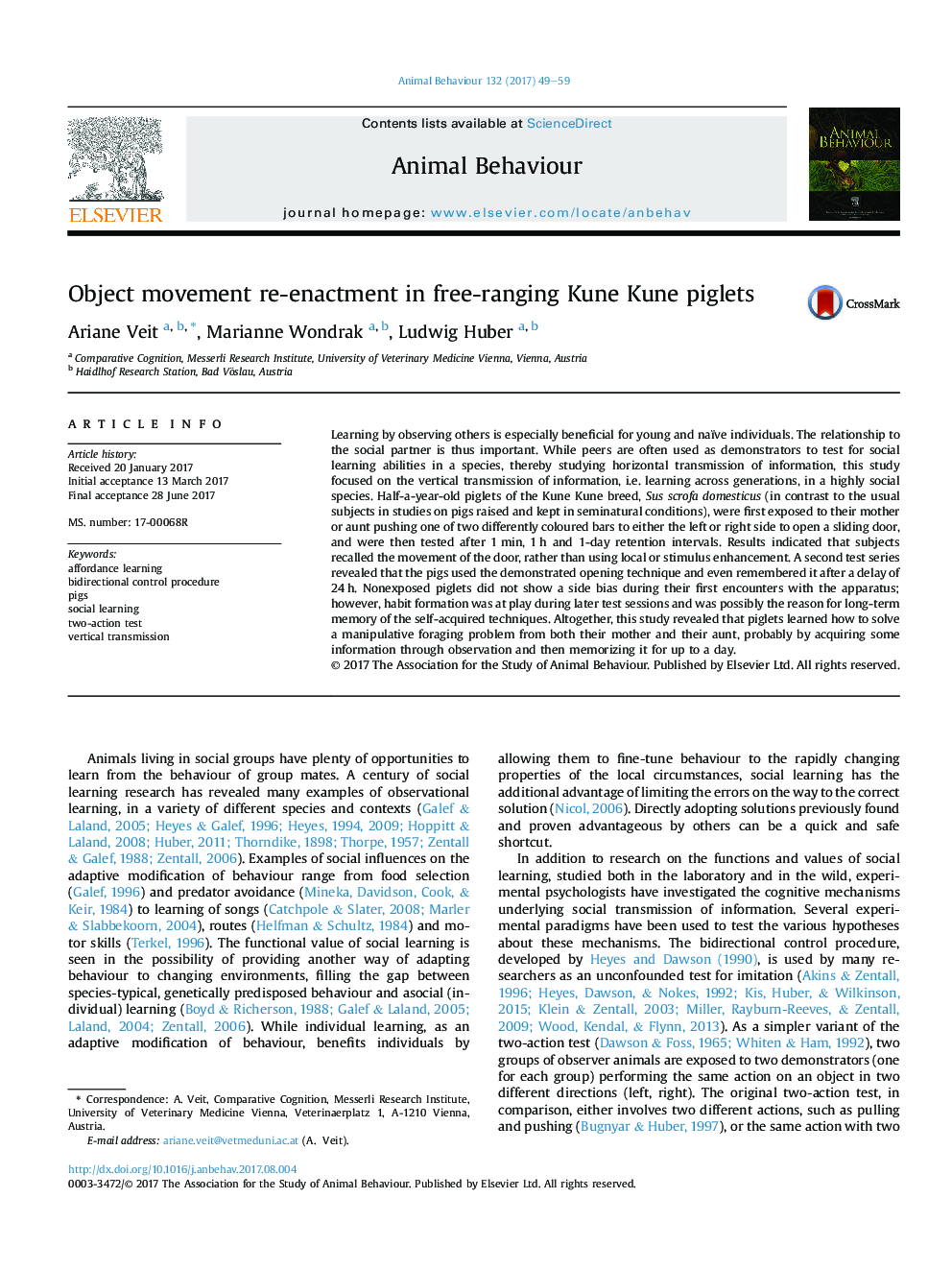| Article ID | Journal | Published Year | Pages | File Type |
|---|---|---|---|---|
| 5538280 | Animal Behaviour | 2017 | 11 Pages |
Abstract
Learning by observing others is especially beneficial for young and naïve individuals. The relationship to the social partner is thus important. While peers are often used as demonstrators to test for social learning abilities in a species, thereby studying horizontal transmission of information, this study focused on the vertical transmission of information, i.e. learning across generations, in a highly social species. Half-a-year-old piglets of the Kune Kune breed, Sus scrofa domesticus (in contrast to the usual subjects in studies on pigs raised and kept in seminatural conditions), were first exposed to their mother or aunt pushing one of two differently coloured bars to either the left or right side to open a sliding door, and were then tested after 1Â min, 1Â h and 1-day retention intervals. Results indicated that subjects recalled the movement of the door, rather than using local or stimulus enhancement. A second test series revealed that the pigs used the demonstrated opening technique and even remembered it after a delay of 24Â h. Nonexposed piglets did not show a side bias during their first encounters with the apparatus; however, habit formation was at play during later test sessions and was possibly the reason for long-term memory of the self-acquired techniques. Altogether, this study revealed that piglets learned how to solve a manipulative foraging problem from both their mother and their aunt, probably by acquiring some information through observation and then memorizing it for up to a day.
Related Topics
Life Sciences
Agricultural and Biological Sciences
Animal Science and Zoology
Authors
Ariane Veit, Marianne Wondrak, Ludwig Huber,
